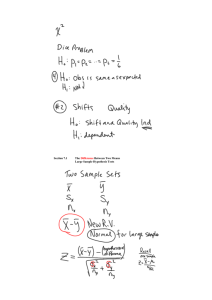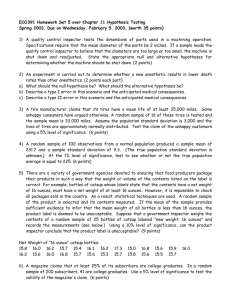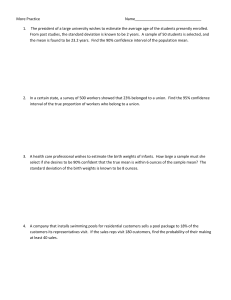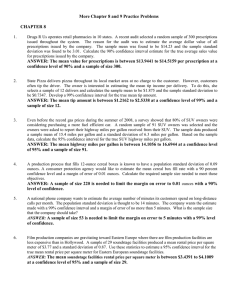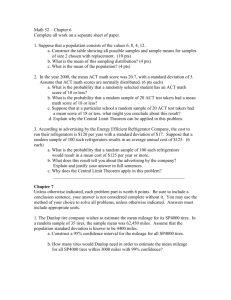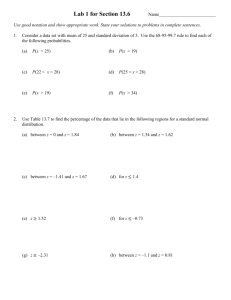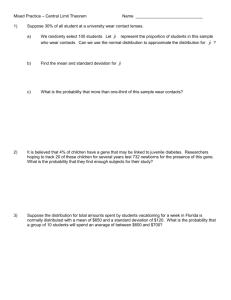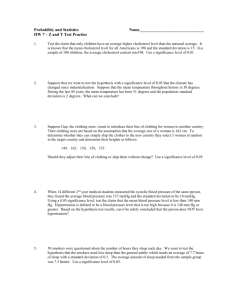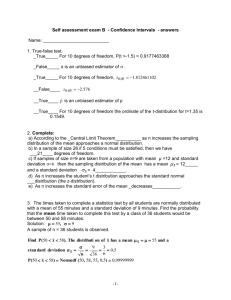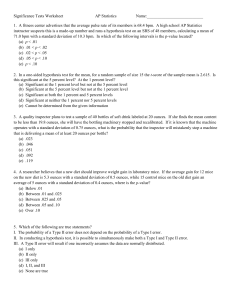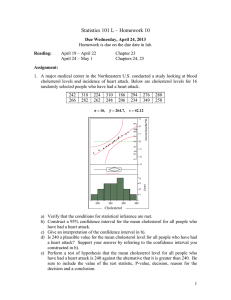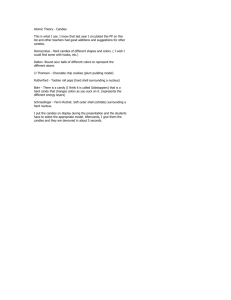Math 210-01, Exam I
advertisement
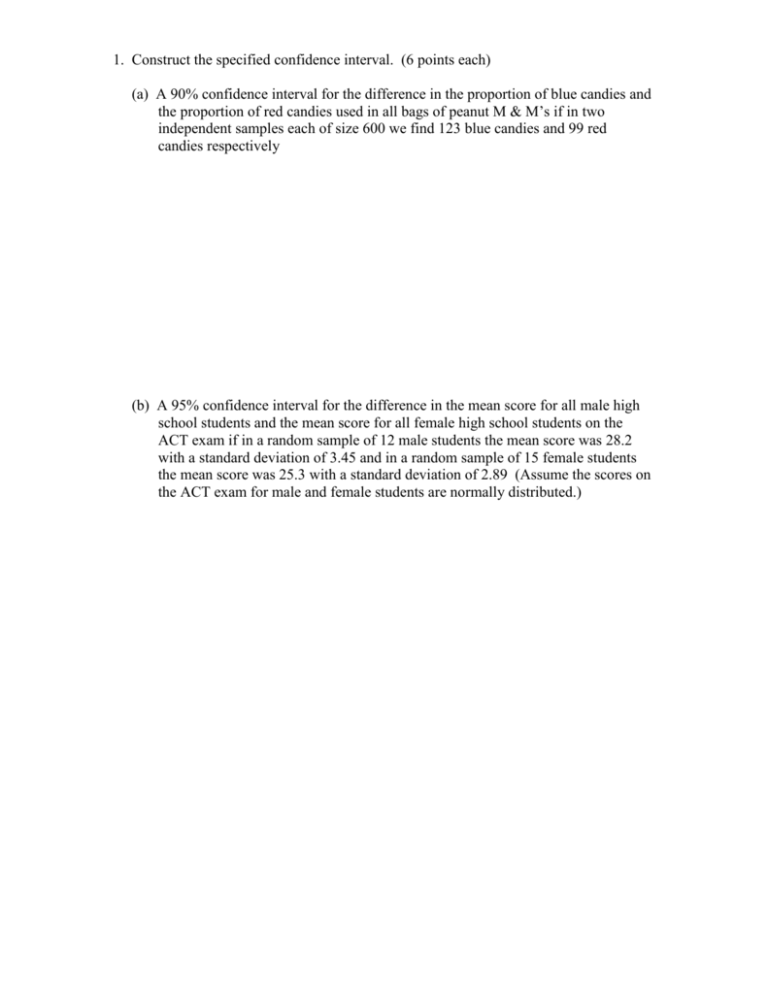
1. Construct the specified confidence interval. (6 points each) (a) A 90% confidence interval for the difference in the proportion of blue candies and the proportion of red candies used in all bags of peanut M & M’s if in two independent samples each of size 600 we find 123 blue candies and 99 red candies respectively (b) A 95% confidence interval for the difference in the mean score for all male high school students and the mean score for all female high school students on the ACT exam if in a random sample of 12 male students the mean score was 28.2 with a standard deviation of 3.45 and in a random sample of 15 female students the mean score was 25.3 with a standard deviation of 2.89 (Assume the scores on the ACT exam for male and female students are normally distributed.) 2. The following table gives the cholesterol levels for six adults before and then after they completed a study with a new experimental cholesterol drug. BEFORE 147 159 122 98 101 145 AFTER 132 142 102 88 94 127 (a) Determine the line of best fit (regression line) for these data points using BEFORE as the x variable. (5 points) (b) Use the equation in part (a) to predict a person’s cholesterol level after taking the drug if their level BEFORE is 130. (5 points) (c) What is value of the correlation coefficient? (3 points) (d) Does Table A-6 indicate that there is significant linear correlation between the BEFORE and AFTER data? Explain how you determined your answer. (5 pts) (e) On your calculator draw the scatterplot of this data together with the graph of the line of best fit. Show me these graphs in an appropriate calculator window. (5 pts) 3. Use the data in problem 2 to set up and conduct a hypothesis test at 5% level of significance to determine if the manufacturer of this new drug can claim that its use will lower a person’s cholesterol on average by more than 10 points. Assume all necessary conditions are satisfied in order to be able to conduct this test. (15 points) 4. (a) For the test conducted in problem 3, what is the probability that a Type I error will occur? (3 points) (b) Is the p-value (observed level of significance) for the test conducted in problem 3 more or less than 5%? (3 points) 5. The standard deviation in the weight of all widgets is 1.35 ounces. A random sample of 60 widgets found a mean weight of 14.25 ounces with a standard deviation of 1.54 ounces. Set up and conduct a hypothesis test at a 5% level of significance to determine if the mean weight of all widgets is different from 14 ounces. (15 points) 6. Determine the p-value (observed level of significance) for the test conducted in problem 5. (5 points) 7. For which of the following values of would we fail to reject the null hypothesis in problem 5. Circle all that apply. (6 points) 0.20 0.16 0.12 0.08 0.04 0.01
